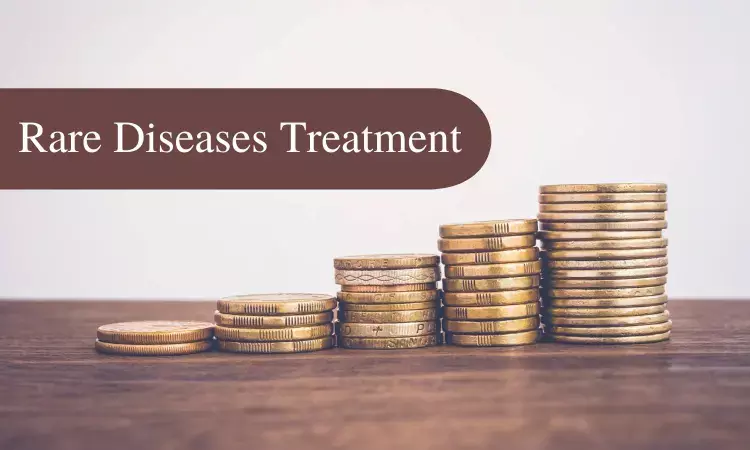- Home
- Medical news & Guidelines
- Anesthesiology
- Cardiology and CTVS
- Critical Care
- Dentistry
- Dermatology
- Diabetes and Endocrinology
- ENT
- Gastroenterology
- Medicine
- Nephrology
- Neurology
- Obstretics-Gynaecology
- Oncology
- Ophthalmology
- Orthopaedics
- Pediatrics-Neonatology
- Psychiatry
- Pulmonology
- Radiology
- Surgery
- Urology
- Laboratory Medicine
- Diet
- Nursing
- Paramedical
- Physiotherapy
- Health news
- Fact Check
- Bone Health Fact Check
- Brain Health Fact Check
- Cancer Related Fact Check
- Child Care Fact Check
- Dental and oral health fact check
- Diabetes and metabolic health fact check
- Diet and Nutrition Fact Check
- Eye and ENT Care Fact Check
- Fitness fact check
- Gut health fact check
- Heart health fact check
- Kidney health fact check
- Medical education fact check
- Men's health fact check
- Respiratory fact check
- Skin and hair care fact check
- Vaccine and Immunization fact check
- Women's health fact check
- AYUSH
- State News
- Andaman and Nicobar Islands
- Andhra Pradesh
- Arunachal Pradesh
- Assam
- Bihar
- Chandigarh
- Chattisgarh
- Dadra and Nagar Haveli
- Daman and Diu
- Delhi
- Goa
- Gujarat
- Haryana
- Himachal Pradesh
- Jammu & Kashmir
- Jharkhand
- Karnataka
- Kerala
- Ladakh
- Lakshadweep
- Madhya Pradesh
- Maharashtra
- Manipur
- Meghalaya
- Mizoram
- Nagaland
- Odisha
- Puducherry
- Punjab
- Rajasthan
- Sikkim
- Tamil Nadu
- Telangana
- Tripura
- Uttar Pradesh
- Uttrakhand
- West Bengal
- Medical Education
- Industry
Health Ministry grants Rs 22.20 crore fund for treatment of 134 rare diseases patients

New Delhi: In a significant relief to the patients suffering from rare diseases, the Union Health Ministry has granted Rs 22.20 crore for 134 patients undergoing treatment for rare diseases in eight designated hospitals.
The guidelines for providing financial aid to rare disease patients were issued last August.
On May 19, the ministry increased the financial support from Rs 20 lakh to Rs 50 lakh for patients belonging to all categories of rare diseases, and on August 11 issued guidelines to grant financial aid to such patients under the National Policy for Rare Diseases, 2021.
Also Read:Delhi HC directs centre to release over Rs 5 Cr to fund clinical trials for rare diseases
According to officials, the number of Centres of Excellence (CoEs) designated for treating those with rare diseases like Gaucher Disease, Tyrosinemia, Severe Combined Immunodeficiency (SCID) and others have also been increased from eight to eleven.
The 11 CoEs are AIIMS, New Delhi, Maulana Azad Medical College, New Delhi, Sanjay Gandhi Post Graduate Institute of Medical Sciences, Lucknow, Post Graduate Institute of Medical Education and Research, Chandigarh, Centre for DNA Fingerprinting and Diagnostics with Nizam’s Institute of Medical Sciences, King Edward Medical Hospital, Mumbai, Institute of Post-Graduate Medical Education and Research, Kolkata, Centre for Human Genetics with Indira Gandhi Hospital, Bengaluru, AIIMS Jodhpur and SAT Hospital, Kerala.
“Since the guidelines were issued, applications from patients seeking financial assistance have been received from eight CoEs, of which Rs 22.20 crore have been released for the treatment,” an official source told PTI.
The budget allocation for the financial year 2022-2023 for rare diseases was Rs 25 crore. The rest of the 2.80 crore will soon be disbursed for the treatment of rare disease patients, the source said.
The guidelines mention that the maximum financial assistance admissible under the scheme will be up to Rs 50 lakh per patient and the financial assistance per patient will be given to the concerned CoE, where the patient is getting treatment, it said. As envisaged in the policy, the state governments shall also support patients of rare diseases.
The guidelines also mention about the crowdfunding portal which was set up in August 2021 for receiving voluntary funds for patients suffering from rare diseases.
There are three groups in which patients diagnosed with rare diseases have been classified.
Group 1 includes disorders amenable to one-time curative treatment, while Group 2 includes diseases requiring long-term lifelong treatment having a relatively lower costs of treatment, and the benefit has been documented in the literature.
Under group 3 falls those diseases for which definitive treatment is available but challenges are to make an optimal patient selection for benefit, very high cost and lifelong therapy.
Also Read:Free treatment of children with rare diseases, Delhi HC seeks AIIMS response
Kajal Rajput joined Medical Dialogues as an Correspondent for the Latest Health News Section in 2019. She holds a Bachelor's degree in Arts from University of Delhi. She manly covers all the updates in health news, hospitals, doctors news, government policies and Health Ministry. She can be contacted at editorial@medicaldialogues.in Contact no. 011-43720751


